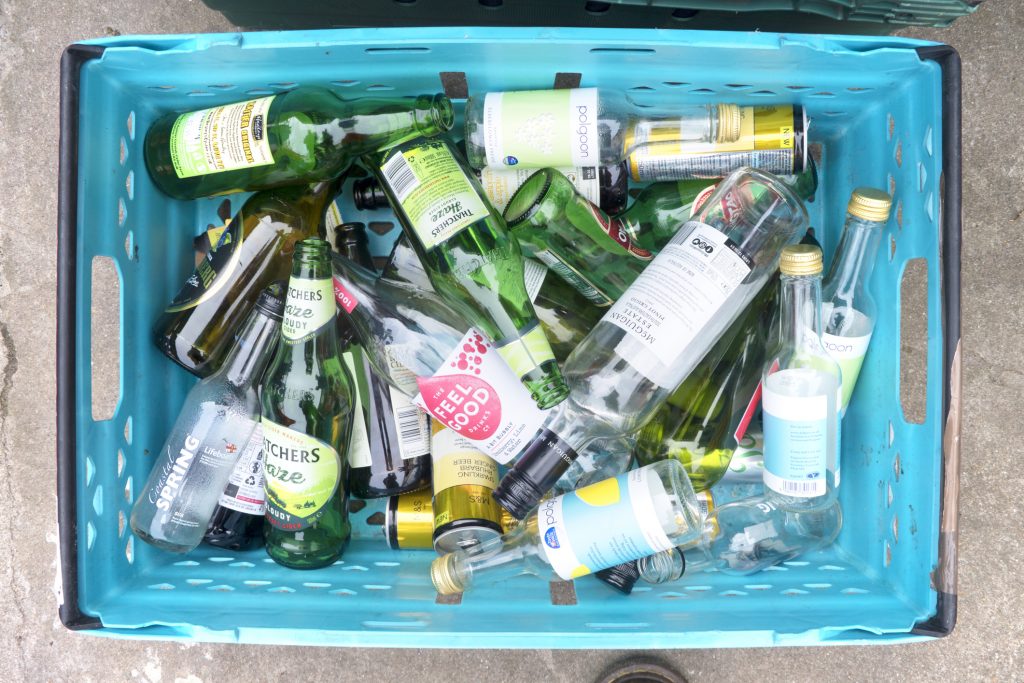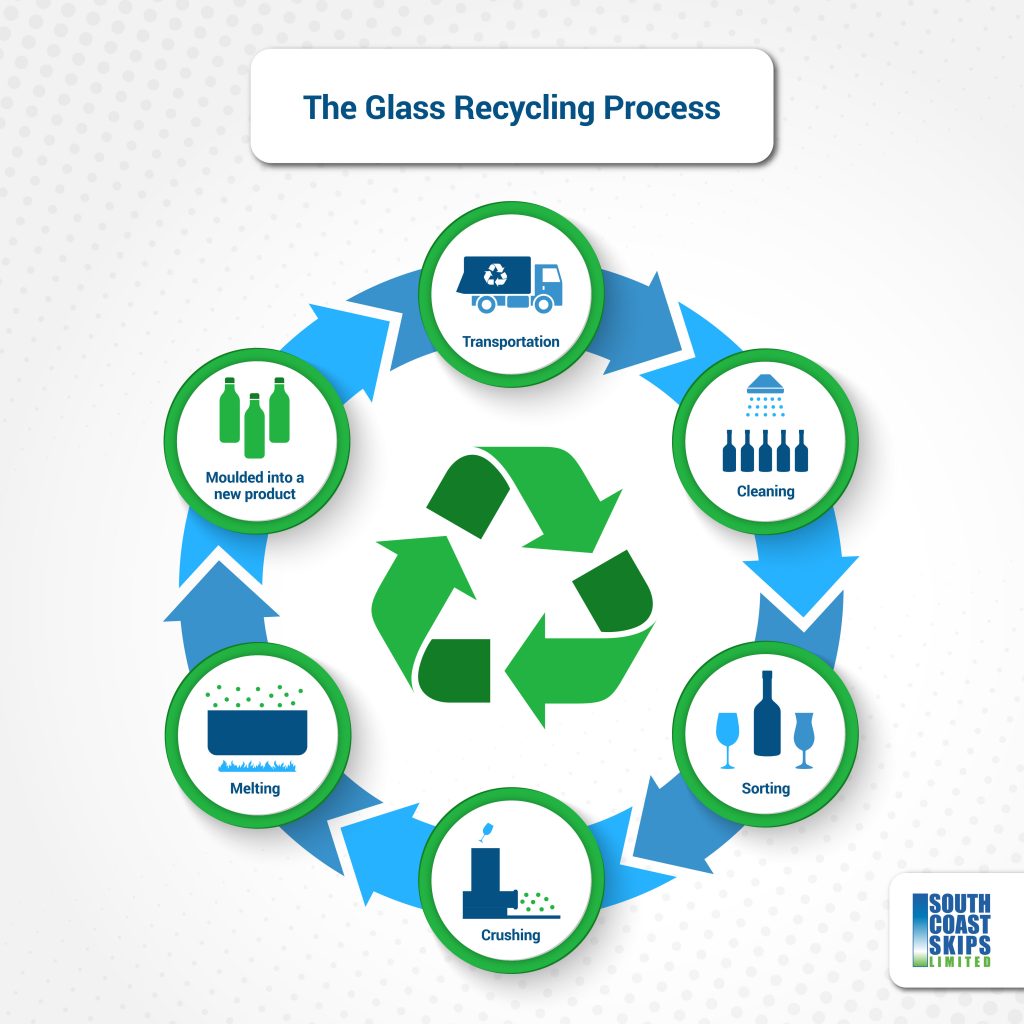How is Glass Recycled?
Environmental awareness has surged in recent years and a greater focus is being placed on sustainability. Consumers are looking for ways to reduce their ecological footprint and glass recycling is an easy method for achieving this.
According to Recycle Now, the UK currently only recycles 71% of container glass; this is well below the industry target of 90% by 2030. This goal can only be met with an increased effort from businesses and consumers alike; however, this can be a challenge when the vast majority of people don’t understand how glass recycling works.

With this in mind, the team at SCS Waste has written this article, explaining the process and the many advantages it offers.
The glass recycling process
- The glass is collected and transported to a specialist waste management facility.
- A pre-treatment process begins to clean the glass and remove any labels, glue or other contaminants.
- The glass is sorted into colour groups and washed again to ensure there are no further impurities.
- The glass is crushed into smaller pieces to simplify the melting process.
- This crushed glass is melted down in a furnace.
- The melted glass mixture is moulded and blown into entirely new products, most commonly jars and bottles. These are then sent back out, ready to be used again.

Can glass go in a skip?
Glass can be disposed of in a skip, but basic safety precautions must be taken to protect both yourself and the waste disposal team. Any jagged edges on larger pieces of glass should be taped up to prevent injury, whereas small pieces of glass should be wrapped up or put in a container before being placed in the skip.
What types of glass can’t be recycled?
Sadly, not all types of glass can be recycled. It’s important to properly separate your glass products, as attempting to recycle any of the below products can result in damage to equipment or the contamination of a glass batch. The following glass items can not be recycled:
- Cookware and light bulbs – These products are made of glass that withstands temperature changes, therefore would not melt in the furnace.
- Window panes – This type of glass has often been treated or laminated for maximum strength, so needs to be processed separately.
- Mirrors – Contamination can be caused by the metallic coating of the mirror glass.
- Nail varnish bottles – Similarly to mirrors, the chemicals used mean they can not be recycled due to the risk of contamination.
- Drinking glasses and vases – These items are made of a different composition to normal glass – some even contain lead crystal – so therefore can not be recycled.
- Spectacles – Most glasses contain hard-to-remove metal components and are made of a specialised type of glass, so can not be recycled with normal glass.
Benefits of recycling glass
Recycling glass can have many benefits for both consumers and the environment alike:
- The raw materials that comprise glass are obtained via quarrying; recycling helps to conserve these natural resources.
- Glass recycling results in a reduction in air pollution due to less harmful gas being released in the melting process.
- Glass is fully sustainable and doesn’t degrade over time, meaning it can be reused over and over without a decrease in quality.
- When new glass is created, the composite substances must be heated to a temperature of over 1400 degrees Celsius. This requires a vast amount of energy which creates greenhouse gases; glass recycling reduces this industrial pollution.
- Glass recycling prevents unnecessary landfill waste.
At SCS Waste, we’re committed to recycling as much of your glass as possible. Our knowledgeable team has been helping homeowners and businesses across the region – including Bognor Regis, Arundel, Littlehampton and beyond – to dispose of their waste responsibly for over 20 years. We use our supply of skips and fleet of specialist vehicles to collect any volume of waste you accumulate – no job is too big or too small!
To discuss your waste management needs with our friendly staff, simply get in touch today.

